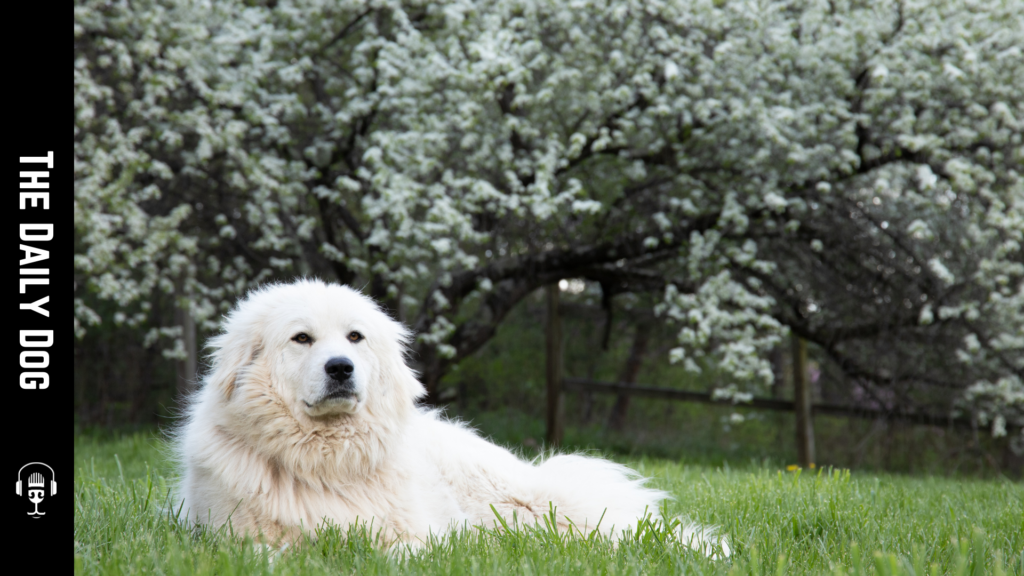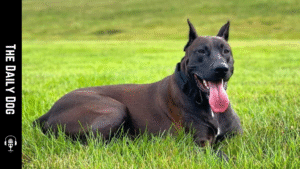The Great Pyrenees, known for its impressive size and striking appearance, is a breed that has captured the hearts of dog lovers around the globe. This majestic canine is not only a stunning sight but also boasts a rich history, unique characteristics, and a personality that makes it a beloved companion. In this article, we’ll explore the origins, physical traits, temperament, care requirements, and much more about the Great Pyrenees.
A Rich History
The Great Pyrenees, also known as the Pyrenean Mountain Dog, has its roots in the mountainous regions between France and Spain. These gentle giants were originally bred to guard livestock in the harsh terrain of the Pyrenees Mountains. Their protective instincts and loyalty made them invaluable companions to shepherds, who relied on them to safeguard sheep from predators like wolves and bears.
Over the centuries, the Great Pyrenees has transitioned from a working dog to a cherished family pet. Their ability to bond with humans and other animals alike, coupled with their inherent protective nature, has solidified their place in homes around the world.
Distinctive Physical Traits
One of the most striking features of the Great Pyrenees is its majestic appearance. Here are some key physical traits that define this breed:
- Size: Great Pyrenees are large dogs, with males typically weighing between 100 to 160 pounds and females ranging from 85 to 115 pounds. Their impressive height can reach up to 32 inches at the shoulder.
- Coat: The breed is known for its thick, double coat that is primarily white, although some may have markings of badger or tan. This luxurious coat serves as insulation against harsh weather, making them well-suited for their mountainous origins.
- Eyes: The Great Pyrenees has distinctive dark eyes that emit a gentle, friendly expression. Their eyes are often almond-shaped, contributing to their overall dignified appearance.
Temperament and Behavior
The Great Pyrenees is renowned for its calm and gentle demeanor. These dogs are known for their affectionate and loyal nature, making them wonderful companions for families and individuals alike. Here are some key aspects of their temperament:
- Protective Instincts: As natural guardians, Great Pyrenees are inherently protective of their family and territory. They are known to be excellent watchdogs, alerting their owners to any potential threats.
- Gentleness: Despite their size, these dogs are gentle giants. They are typically good with children and can coexist peacefully with other pets, provided they are socialized properly from a young age.
- Independence: Great Pyrenees can be quite independent thinkers. They may not always follow commands immediately, but they are intelligent and can be trained with patience and consistency.
Training and Socialization
While the Great Pyrenees has a gentle nature, training and socialization are essential for ensuring they develop into well-rounded adults. Here are some tips for successful training:
- Start Early: Begin training and socialization at an early age. Expose your Great Pyrenees to various environments, people, and other animals to help them become more adaptable.
- Positive Reinforcement: Use positive reinforcement techniques to encourage good behavior. Treats, praise, and playtime can be effective motivators for this breed.
- Be Patient: Remember that Great Pyrenees can be somewhat stubborn. Consistency and patience are key when working with this breed.
Health Considerations
Like all breeds, the Great Pyrenees is prone to certain health issues. Regular veterinary check-ups and a healthy lifestyle can help mitigate these risks. Some common health concerns include:
- Hip Dysplasia: This genetic condition affects the hip joint and can lead to arthritis. Regular exercise and maintaining a healthy weight can help manage this condition.
- Bloat: Also known as gastric torsion, bloat is a serious condition that can affect large breeds. Feeding smaller, more frequent meals and avoiding vigorous exercise after eating can help reduce the risk.
- Skin Issues: The Great Pyrenees’ thick coat can be prone to skin infections and other issues. Regular grooming and maintaining proper hygiene are crucial for their overall health.
Grooming and Care
The Great Pyrenees requires regular grooming to maintain its beautiful coat and overall health. Here are some grooming tips:
- Brushing: Brush your Great Pyrenees at least once a week to prevent matting and reduce shedding. During shedding season (spring and fall), more frequent brushing may be necessary.
- Bathing: Bathe your dog only when necessary, as over-bathing can strip the coat of its natural oils. Use a gentle dog shampoo and ensure the coat is thoroughly rinsed.
- Nail Trimming: Regularly check and trim your dog’s nails to prevent overgrowth, which can lead to discomfort and difficulty walking.
Nutrition and Diet
Proper nutrition is vital for the health and well-being of your Great Pyrenees. Here are some essential tips for feeding this breed:
- High-Quality Dog Food: Choose a high-quality dog food that meets the nutritional needs of large breeds. Look for options that contain real meat, whole grains, and a balance of vitamins and minerals.
- Portion Control: Monitor portion sizes to prevent obesity, which can exacerbate health issues such as hip dysplasia and bloat. Consult your veterinarian for specific feeding guidelines based on your dog’s age, weight, and activity level.
- Hydration: Ensure your Great Pyrenees has access to fresh, clean water at all times.
Living with a Great Pyrenees
Great Pyrenees thrive in environments where they can be part of the family. While they can adapt to apartment living, they are best suited for homes with ample space and a yard to roam. Here are some considerations for living with this breed:
- Exercise Needs: While they are not as high-energy as some breeds, Great Pyrenees still require regular exercise. Daily walks, playtime, and mental stimulation are essential to keep them healthy and happy.
- Mental Stimulation: Engage your Great Pyrenees with puzzle toys, training exercises, and interactive play to keep their minds sharp.
- Social Interaction: This breed enjoys being around people and is known for forming strong bonds with their families. Ensure they have plenty of social interaction to prevent boredom and separation anxiety.
Conclusion
The Great Pyrenees is truly a magnificent breed, known for its gentle nature, striking appearance, and unwavering loyalty. Whether you’re looking for a family companion, a guardian, or a friend, this breed offers a unique blend of qualities that can enrich your life. With proper care, training, and love, a Great Pyrenees can thrive in your home, bringing joy and companionship for years to come. If you’re considering adding a Great Pyrenees to your family, be prepared to embrace the beauty and challenges of living with this gentle giant.










